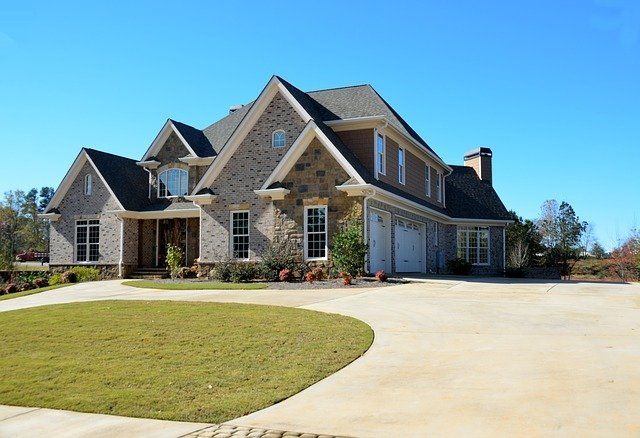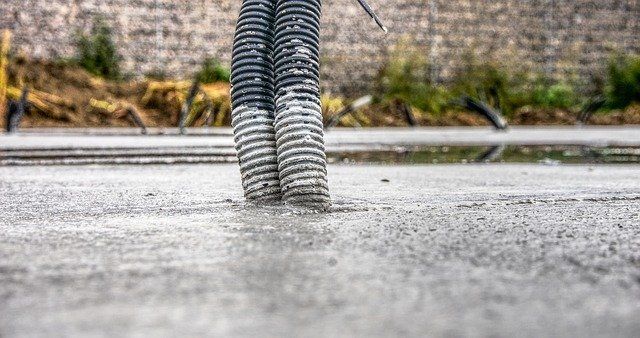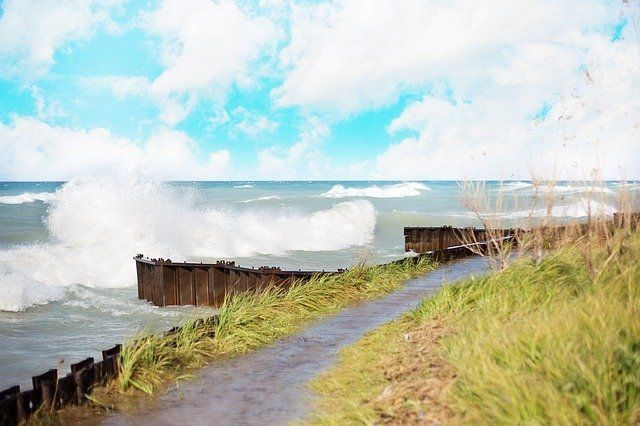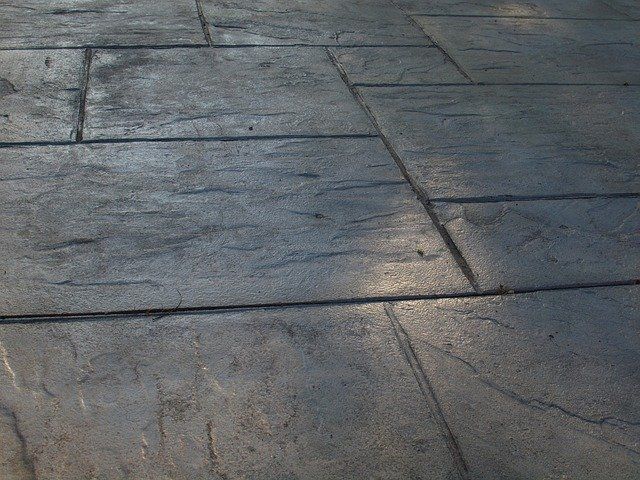Concrete Contractors Green Bay
Concrete Green Bay, Wisconsin
For centuries, concrete has been used internationally in a variety of facets to express cultural, artistic, and social values. In the United States, solid foundations are established by high pressure cement slabs that compose the vast concrete jungles that we see in cities like New York, Chicago, Detroit, Los Angeles, and our beloved Titletown, Green Bay.
Being a sub-basin of the majestic Lake Michigan and near the mouth of the Fox River, there are certain caveats and entitlements that concrete contractors need to be aware of when deciding where and how to pour the proper concrete slab. In Brown County, cities like De Pere and neighboring environs like Eaton, Glenmore, Pittsfield, and Ledgeview are susceptible to similar admonitions when it comes to constructing a stable and reliable concrete slab.
Having worked in Green Bay for over 20 years, Liberty Concrete of Green Bay, WI are highly skilled and qualified to pull any city permit to add-on, replace, install, and design a concrete masterpiece.
Taking the stress out of finding a contractor is our specialty. We have poised our team to be available for short-term projects that need to be taken care of within a few weeks. We also have a crew that is oriented to handle longer and larger jobs for our bigger residential and commercial customers.
Finding reliable concrete contractors near me in Green Bay WI is not exorbitantly hard in our area. There are numerous licensed and insured contractors in Brown County, as of recently there are over 45! Choosing the right expert to construct a technical slab, wall, or design should be done with poise and aplomb. Here are a few reasons why our Green Bay concrete is the best choice for your next project.
Request a Quote
Contact Us
Why Choose Liberty Concrete?
Experienced and Reliable
The way we measure concrete is by utilizing solidity and malleable fortification tests. These trials put certain mixtures of concrete under high duress and the reaction is monitored and recorded. The strength of the mixture is often dictated by the factor of water to cement and different strengths are used for varying projects.
Our team is experienced in proper construction of shoreline sea walls, foundational flatwork, driveways, patios, and more. Constructing these projects require individual attention and factoring that inexperienced service providers would likely avoid. Our standard far exceeds the industry standard when our concrete doctors are hired.
Licensed and Insured Concrete Contractor in Green Bay
It is illegal to pour concrete unlicensed in Wisconsin if a project requires a permit to be pulled to work on a single or two-family house. This stipulation does not apply to any projects that do not require a building permit. For most projects in the Green Bay, WI area; a building permit will need to be pulled by an individual with a dwelling contractor certification.
Our concrete pros are licensed by the state of Wisconsin to pull the necessary building permits to construct your ideal concrete development. From commercial foundations, walls, and sidewalks to residential driveways, patios, and slabs; our crew can execute the project legally and professionally. Our insurance covers both the customer and our business in a covet loss or injury. This takes a tremendous weight off the shoulders of the property owner knowing that their valuables are protected.
Affordable Rates
Pricing each concrete job comes with its unpredictable factors, making it more challenging to give an umbrella estimate of prices. The main components that factor into crafting an estimate are the conditions of the subbase preparation, grading, finishing, man-hours, and the fortifications used to reinforce the cement to name a few. When hiring a contractor, the price will be heavily dictated by the size in square footage. For example, the nationally accepted ranged of pricing for a driveway could vary between $6-$14 per square foot.
Our services are exceptionally affordable compared to the national average. We aim to maintain a locally competitive edge when we are asked to provide an estimate. Our reasonable prices should not be mistaken for a lesser quality of work, our dedication to quality is unparalleled in the concrete contractor industry. Just look at the many satisfied customers that have reviewed our business.
Our Services
Constructing a foundation for new home build, adding on to an additional structure, or improving an overall visual aesthetic is often what concrete is intended for. It is no wonder that concrete was used by the ancient Romans back in 800 BC to behold their empirical might before the spectating old world. They crafted a raw version of concrete, different from what we have today, called “pozzolana” which is what the roof of the Pantheon is made from. This mixture of limestone, water, and volcanic ash has stood the test of millenniums and remains intact to this day. Concrete construction is here to stay for centuries to come, here are some of the finest concrete services that we provide in the Green Bay area.
How We Handle Harsh Winters in Green Bay
Winter is a difficult time of year for construction projects in many parts of the country. This is particularly true when it comes to pouring and finishing concrete, which requires specific temperatures and dry conditions for successful placement and curing. In Green Bay, where the average snowfall is around 50 inches per year, winter weather presents significant challenges for concrete contractors. We will go over the difficulties of pouring and finishing concrete during harsh winters, as well as the strategies that experienced contractors use to overcome these challenges.
Understanding the Challenges of Harsh Winter Conditions
In order to pour and finish concrete successfully, contractors need to be able to predict and plan for a range of variables, including temperature, moisture, and wind. In the winter, all of these conditions can conspire to make it challenging to get concrete to place properly and cure effectively. Snow and ice can create problems with excavation and site preparation, while cold temperatures can slow down the chemical process of hydration that a slab needs to cure. In addition, wind and moisture can cause issues with evaporation and finishing, which can leave the slab uneven or rough.
Strategies for Overcoming Winter Challenges
Despite these difficulties, experienced concrete contractors know how to work with winter conditions to deliver high-quality results. Some strategies that they use include:
- Heating the Site: In order to keep the ground from freezing and slowing down the hydration process, contractors may use heaters to warm up the site before and during the pour.
- Using Hot Water: By using hot water to mix the concrete, the mixture can help to compensate for cooler temperatures and speed up the curing process.
- Adding Accelerators: Accelerators are chemical additives that speed up the curing process, which can be helpful in colder temperatures. However, these need to be used carefully to avoid affecting the integrity of the final product.
- Protecting the Site: To prevent moisture and debris from getting into the concrete, contractors may erect tarps or other barriers around the site.
The Effects of Cold Temperatures on Concrete
In addition to slowing down the curing process, cold temperatures can have other negative effects on concrete. These include:
- Reduced Strength: If concrete is exposed to temperatures below freezing, the water in the mixture can expand and contract, which can create microscopic cracks that weaken the final product.
- Increased Shrinkage: Cold weather can also cause the concrete to shrink more than usual as it cures, which can lead to cracking or other issues if not accounted for.
- Slower Set Times: In general, concrete takes longer to set and cure in cold temperatures, which means that contractors may need to adjust their timelines accordingly.
Why Experienced Contractors Are Essential in Winter
Given the challenges of pouring and finishing concrete in harsh winter conditions, it's clear that experienced contractors are an essential component of any successful winter project. A true professional will have the expertise and knowledge needed to plan for and overcome the various obstacles that winter weather can throw their way. Whether through careful planning, heating techniques, or strategic use of additives, experienced teams can deliver high-quality concrete projects even in the midst of a snowy winter.
Pouring and finishing concrete during harsh winters can be a challenging endeavor, but with the right strategies and expertise, it's possible to get the job done well. Experienced contractors understand the complexities of winter weather and can plan for them accordingly, using techniques like site heating, hot water mixing, and accelerators to ensure that the concrete sets and cures as intended. By choosing a reliable and experienced contractor for your winter concrete project, you can feel confident that you'll get the results you're looking for, no matter what the weather has in store.
How Long Does it Take Concrete to Cure?
When you are planning a construction project, one of the most important decisions you will make is what type of concrete is best suited for the job. Not only is the appearance of the finished product important, but also how long it takes for the concrete to cure.
The process of pouring concrete is relatively simple. First, the area where the concrete will be poured is prepared. This may involve clearing debris, leveling the ground, and putting down a base layer of gravel; among a variety of other implementations. Next, the concrete mix is prepared according to the manufacturer's instructions and specification for durability. Once the aggregate is ready for application, it is time to pour it into the prepared area.
Concrete is a construction material that is composed of cement, sand, gravel, and water. The cement is the binding agent that helps hold together the other components and create the bulletproof material that we all know and use. Once the concrete mix has been poured, it will begin to harden as the water in the mix starts to evaporate. The evaporation process causes a chemical reaction that makes the concrete harder and stronger.
After the concrete is poured, it will need to cure for a period of time before it is safe to walk on or drive over. The curing process allows the concrete to harden and reach its full strength. Depending on the type of concrete and the weather conditions, curing can take anywhere from 24 hours to 28 days. During this time, it is important to keep the concrete moist so that it doesn't crack or crumble. You can do this by spraying it with water or covering it with plastic sheeting. Once the concrete has cured, you can enjoy your new driveway, patio, or sidewalk!
Pros and Cons of Concrete
Versatility, durability, and utility are the most notable features of concrete as it relates to construction. However, concrete as a construction medium is not all sunshine and rainbows. While it is the most popular building material, there are certain drawbacks to building with concrete. In order to better understand the pros and cons of concrete, it is important to understand how concrete is made and how it reacts with the environment around it.
In its initial formation, concrete is made up of an amalgamation of sand, rock, stone, water, cement, and other sedimentary elements. When it is mixed to form, the aggregate is highly manipulable and can be used to deliver virtually an unlimited number of creations. Although it is easy to highlight the upside of concrete, there is a less desirable side that is often overlooked.
Cons:
Depending on the variation of Portland cement that is being used, concrete is susceptible to breaking down from alkalis found above and below the ground. Since alkali metals are highly reactive with other minerals, it is encouraged to be cautious with concrete in areas that have higher levels of salt and potassium chloride. Similarly, concrete becomes weakened when severely cold weather conditions occur. Prolonged snowfall, combined with extreme low temperatures can be grounds for splitting or cracking. External factors like weather play to the biggest downfall of concrete. Other factors like restoration costs are another large expense that may be more costly compared to other building mediums.
Pros:
Being one of the foremost used product in the modern world for construction, concrete is an easy choice for almost any project. This durable material can be used to build above ground and below ground for utilities, pipes, and much more. The biggest selling point for concrete is how cost-effective it is against asphalt, pavers, and hardwood. Not only is it the best long-term investment monetarily, it also can create a natural barrier of protection against fire or flooding. The pliability of wet concrete contributes to the overall ability to use concrete for a variety of different needs and uses.
The Best Types of Concrete Foundations for Cold Climates
When building a home in cold climates, selecting the right type of concrete foundation is crucial to ensure the structure withstands freezing temperatures and frost heave. Here we explore two highly effective foundation types for such conditions—Frost-Protected Shallow Foundations (FPSFs) and Insulated Concrete Forms (ICFs).
Frost-Protected Shallow Foundations (FPSFs)
Frost-protected shallow foundations are designed to combat the effects of frost heave by using insulation to raise the frost line around the foundation. This method allows for a shallower foundation depth, which can be both cost-effective and efficient.
Key Benefits:
- Resistance to Frost Heave: By keeping the ground temperature above freezing, FPSFs prevent frost heave from damaging the foundation.
- Energy Efficiency: The insulation used in FPSFs helps maintain consistent interior temperatures, reducing heat loss and energy consumption.
- Cost-Effective: Requires less excavation compared to traditional deep foundations, lowering construction costs.
- Compliance with Codes: Meets local building codes for cold climate construction while ensuring durability and stability.
Key Considerations:
Concrete professionals must ensure proper drainage and waterproofing to manage snowmelt and rainwater effectively.
The use of durable materials that can withstand extreme weather over time is mandatory.
Incorporating comprehensive insulation to maintain thermal performance is required for any concrete contractor that installs a FPSF.
Insulated Concrete Forms (ICFs)
Insulated concrete forms are another excellent choice for cold climates. These foundations consist of reinforced concrete poured between layers of rigid insulation, offering superior thermal performance and structural strength.
Key Benefits:
- Thermal Performance: ICFs provide continuous insulation, reducing heat loss and ensuring a stable indoor climate.
- Durability: The combination of concrete and insulation makes ICFs highly resistant to extreme weather conditions and temperature fluctuations.
- Moisture Control: ICFs naturally offer good waterproofing properties, reducing the risk of moisture-related issues.
- Versatility: Suitable for a variety of soil types and ground conditions, making it a versatile option for different sites.
Key Considerations:
Contractors/sub-contractors must properly design the drainage system to handle snowmelt and rainwater.
Ensuring compliance with local building codes and standards is the standard and every contractor should be aware of local codes and permitting.
Consider the initial higher cost, which is often offset by long-term energy savings and durability benefits.
In summary, both Frost-Protected Shallow Foundations and Insulated Concrete Forms offer robust solutions for building in cold climates. By prioritizing resistance to frost heave, thermal performance, and moisture management, homeowners can ensure their foundations remain strong and efficient throughout the harsh winter months.
From the Manager, Johnny
Hello, thank you for coming by. Our team at Liberty Concrete is exceptionally talented at designing and pouring concrete for residential and commercial customers. Since 2002, we have been working in Brown County and have served thousands of customers. Our specialties and services include but are not limited to; driveways, decorative concrete, retaining walls, seawalls, and patios. Our goal is to make it very simple for people to reach us. For this reason, we have always offered 100% free quotes for every service that we provide. We have access to trucks, pumps, and personnel that can enable us to serve the population and keep our schedule available to help as many parties as possible. There are few things our contractor has not come across in regards to concrete. Our experience in this field has taught us valuable lessons that help us avoid accidents and keep our staff and customers safe and in turn, we are always striving to be a better concrete company day-in and day-out. Safety is our priority everyday and we are fully insured to protect our assets, as well as yours.
Satisfaction Guaranteed
When a customer calls us looking for concrete experts in the Green Bay, Wisconsin area; we will be sure to give a speedy and accurate estimate of the project at hand. If our pros are the ones to do the job, there is very little that we cannot handle. Those that have used our services in the past can attest that our standards far exceed what is normally accepted in the contactor industry. We go even further to ensure that your satisfaction is met with our competitive rates, you will be surprised how reasonably we price our offerings.
Free Estimates
There is no pressure to receive a quote from Liberty Concrete. We do not pressure our customers into choosing our team for their project, we let the prices and customer reviews do the talking for us. Getting a quote will not put you into a binding contract to hire us, we will be standing by to take your call! Our enthusiasm for serving our community is reflected in our rates, which is why we have made it abundantly simple to get in touch with us. Call the number below to find out more information about us and how we can help.
Liberty Concrete has built a strong reputation in the construction and concrete industry, known for its commitment to quality, reliability, and customer satisfaction. Customers often praise the company for delivering durable and high-quality concrete products that meet the demands of both residential and commercial projects. Their attention to detail and ability to meet project deadlines have earned them trust among contractors, builders, and homeowners alike.
The company is also recognized for its knowledgeable and professional team, who are always ready to provide guidance on selecting the right concrete mix for specific needs. Whether it’s for driveways, foundations, or decorative concrete, Liberty Concrete is often commended for its consistency and excellent service.
While specific reviews may vary, Liberty Concrete’s reputation is generally positive, reflecting its dedication to maintaining high standards in product quality and customer care. For a clearer picture, checking local reviews or testimonials is recommended.
Building More Than Foundations: Liberty Concrete’s Community Commitment
At Liberty Concrete, we believe our responsibility extends beyond pouring perfect driveways and patios. We are deeply rooted in this community, and our mission is to help it thrive. Our commitment is built on action—from sponsoring local youth sports teams and community events to volunteering our time and resources for public improvement projects. We see every project as an opportunity to strengthen the neighborhoods we live and work in.
We make it a priority to partner with other local businesses and source our materials from area suppliers whenever possible. This keeps our local economy strong and builds lasting relationships. When you work with us, you’re not just hiring a contractor; you’re investing in a company that invests right back into the community.
Choose Liberty Concrete for your next project and join us in building a better, stronger community together.
At Liberty Concrete, quality isn’t just a promise—it’s the standard across all our services. From foundations and driveways to decorative concrete and commercial projects, every job receives careful attention to detail and expert craftsmanship. Our team is dedicated to delivering reliable results, no matter the type or scale of the work. We use top-grade materials and proven techniques to ensure your concrete is durable, attractive, and built to last.
With Liberty Concrete, you can count on unmatched consistency and excellence in every project. Choose a partner who stands behind the quality of all their concrete services, every time.
Liberty Concrete, your driveway specialists dedicated to combining strength, beauty, and long-lasting performance. Our expertise lies in designing and constructing concrete driveways that not only withstand the demands of daily use but also elevate the curb appeal of your home. Our commitment is to deliver exceptional quality that combines lasting performance with aesthetic appeal. Using high-grade materials and precise craftsmanship, we ensure every project meets your vision and exceeds your expectations. From initial design to the final finish, we focus on providing a seamless customer experience and results you can depend on for years to come. Choose Liberty Concrete for a foundation of excellence in every pour.



